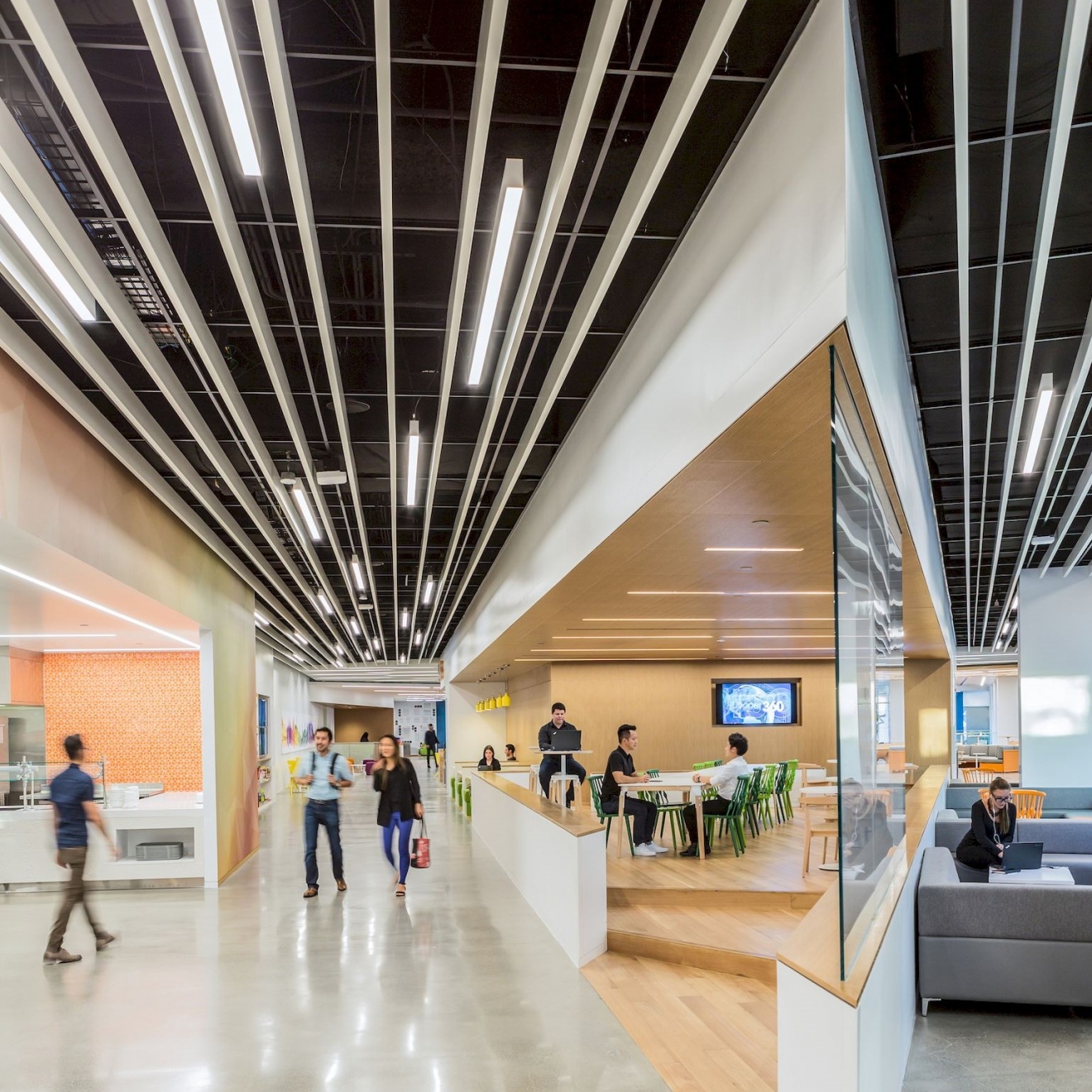October 30, 2019
Search Results for: people
October 29, 2019
Remote working key to winning the battle for talent
by Neil Franklin • Flexible working, News
 According to a new study conducted by the Centre of Economics and Business Research (Cebr) with support from Citrix Systems, Inc., companies that leverage technology to enable flexible and remote working models can not only attract talent, but increase employee engagement and productivity, potentially boosting the US economy by as much as $2.36 trillion a year. Through an online survey of more than 2,500 US knowledge workers conducted in July, the Cebr study sought to determine the potential value to the US economy of the adoption of a more widespread, flexible working culture. It claims that in offering virtual/remote work options and providing the tools to enable them, companies can better compete in the battle for talent by dipping into untapped pools of workers. (more…)
According to a new study conducted by the Centre of Economics and Business Research (Cebr) with support from Citrix Systems, Inc., companies that leverage technology to enable flexible and remote working models can not only attract talent, but increase employee engagement and productivity, potentially boosting the US economy by as much as $2.36 trillion a year. Through an online survey of more than 2,500 US knowledge workers conducted in July, the Cebr study sought to determine the potential value to the US economy of the adoption of a more widespread, flexible working culture. It claims that in offering virtual/remote work options and providing the tools to enable them, companies can better compete in the battle for talent by dipping into untapped pools of workers. (more…)
October 28, 2019
Majority of American workers are unhappy in their jobs
by Mark Eltringham • News, Wellbeing
 Although more people are in work in the US than at any time in the past 50 years, only 40 percent of American workers say that they work in good jobs, according to a new study (registration) from the Lumina Foundation, the Bill & Melinda Gates Foundation, Omidyar Network, and Gallup. The report claims that 44 percent of workers surveyed said they had “mediocre” jobs while 16 percent said they were in “bad” jobs. (more…)
Although more people are in work in the US than at any time in the past 50 years, only 40 percent of American workers say that they work in good jobs, according to a new study (registration) from the Lumina Foundation, the Bill & Melinda Gates Foundation, Omidyar Network, and Gallup. The report claims that 44 percent of workers surveyed said they had “mediocre” jobs while 16 percent said they were in “bad” jobs. (more…)
October 27, 2019
Over 50s account for total five year increase in night working
by Neil Franklin • News, Wellbeing, Workplace
 The number of people regularly working night shifts is at its highest level since the Office for National Statistics began collecting records in their current form, according to a new analysis from the TUC. The analysis of official data shows that 3.25 million people (more than 1 in 9 workers) work in Britain’s night-time economy – 100,000 more than five years ago. While the number of over 50s doing night work has accelerated in recent years, fewer young workers are doing night shifts. (more…)
The number of people regularly working night shifts is at its highest level since the Office for National Statistics began collecting records in their current form, according to a new analysis from the TUC. The analysis of official data shows that 3.25 million people (more than 1 in 9 workers) work in Britain’s night-time economy – 100,000 more than five years ago. While the number of over 50s doing night work has accelerated in recent years, fewer young workers are doing night shifts. (more…)
October 25, 2019
Fine tuning office design and its most wonderful invention to our needs
by Mark Eltringham • Comment, Workplace design
 The best workplaces are always focused on people. Which is why many of the great pioneers of workplace thinking are from the social sciences, including disciplines such as psychology, ethnography and anthropology. These are the people who have shared the insights that help us to understand the characteristics of great office design. In particular, this relies on an awareness of the ways in which people interact in particular spaces. (more…)
The best workplaces are always focused on people. Which is why many of the great pioneers of workplace thinking are from the social sciences, including disciplines such as psychology, ethnography and anthropology. These are the people who have shared the insights that help us to understand the characteristics of great office design. In particular, this relies on an awareness of the ways in which people interact in particular spaces. (more…)
October 25, 2019
How office design trends in different countries feed off each other
by Steve Elliott • Comment, Workplace design
 The term Global Village has passed into general use to describe many of the phenomena we associate with the modern globalised world. But it actually dates back to 1962 when coined by Marshall McLuhan to describe an emerging, electronically contracted world in which cultures converge alongside political, business and legislative frameworks. These forces have been instrumental in bringing nations and organisations closer together and yet each nation continues to be shaped by little differences and residual cultures and conditions. (more…)
The term Global Village has passed into general use to describe many of the phenomena we associate with the modern globalised world. But it actually dates back to 1962 when coined by Marshall McLuhan to describe an emerging, electronically contracted world in which cultures converge alongside political, business and legislative frameworks. These forces have been instrumental in bringing nations and organisations closer together and yet each nation continues to be shaped by little differences and residual cultures and conditions. (more…)
October 25, 2019
Workplace culture fails to meet needs of multi-generational workforce
by Neil Franklin • Flexible working, News, Technology, Workplace design
 A new report (registration) claims that companies with a one-size-fits-all approach to workplace design is failing to meet the needs and expectations of a multigenerational workforce. Published by Chargifi with in put from WeWork and other firms, the study polled more than 2,000 employees about their experience of workplace culture and office design and how mobility affects their day-to-day lives. (more…)
A new report (registration) claims that companies with a one-size-fits-all approach to workplace design is failing to meet the needs and expectations of a multigenerational workforce. Published by Chargifi with in put from WeWork and other firms, the study polled more than 2,000 employees about their experience of workplace culture and office design and how mobility affects their day-to-day lives. (more…)
October 25, 2019
The push and pull of the workplace for parents
by Neil Franklin • News, Workplace
 The experiences and attitudes of working parents are explored in two new reports which offer contrasting views on what happens to the careers and skills of mothers and fathers. The first from CWJobs uncovers the fears parents have of being left behind by technology while they take time away from their careers to care for children, while the second looks at the ways in which parenthood might improve people’s skills and ability to deal with complex roles. (more…)
The experiences and attitudes of working parents are explored in two new reports which offer contrasting views on what happens to the careers and skills of mothers and fathers. The first from CWJobs uncovers the fears parents have of being left behind by technology while they take time away from their careers to care for children, while the second looks at the ways in which parenthood might improve people’s skills and ability to deal with complex roles. (more…)
October 24, 2019
Asking about mental health is not the answer, listening is
October 24, 2019
Effects of diversity and inclusion training remain unclear
by Neil Franklin • News, Workplace
This week the CIPD and Westminster Business School launched their new report: Diversity management that works: an evidence based review. At a launch event at the EY offices in Canary Wharf, academics and people practitioners convened to discuss the reports findings. They also explored what it means for practice. The research maps out the current evidence on the types of diversity interventions in organisations. It analyses recent scientific evidence and exploring what works. This was then tested with practitioners and professionals who regularly work on diversity and inclusion (D&I) practices within organisations. (more…)
October 23, 2019
Mental health at work addressed by new consortium of firms
by Mark Eltringham • Legal news, News, Wellbeing
 Lloyds Banking Group, Unilever the CBI, Bupa and the John Lewis Partnership are among the major firms and other organisations that have signed up to an agreement that aims to transform the approach to mental health in the workplace. The Mental Health at Work Commitment is a promise to adopt six standards which have been developed with mental health charities, large employers and trade organisations. (more…)
Lloyds Banking Group, Unilever the CBI, Bupa and the John Lewis Partnership are among the major firms and other organisations that have signed up to an agreement that aims to transform the approach to mental health in the workplace. The Mental Health at Work Commitment is a promise to adopt six standards which have been developed with mental health charities, large employers and trade organisations. (more…)



























October 29, 2019
Here is how you should handle racial discrimination in the workplace
by Karen Holden • Comment, Legal news, Workplace